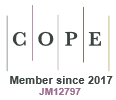Simulations of Horizontal Roll Vortex Development Above Lines of Extreme Surface Heating
WE Heilman and JD Fast
International Journal of Wildland Fire
2(2) 55 - 68
Published: 1992
Abstract
A two-dimensional, nonhydrostatic, coupled, earth/atrnospheric model has been used to simulate mean and turbulent atmospheric characteristics near lines of extreme surface heating. Prognostic equations are used to solve for the horizontal and vertical wind components, potential temperature,and turbulent kinetic energy (TKE). The model computes nonhydrostatic pressure deviations from a derived atmospheric continuity equation. Hori- zontal pressure gradients generated from surface heating are calculated from thermal wind principles. Model simulations indicate the development of buoyancy-induced horizontal roll vortices near regions with surface temperatures typical of wildland fires. Model results are qualitatively similar to previous wind-tunnel experiments. When surface temperatures are increased, the circulations associated with the roll vortices become more vigorous. The introduction of a weak ambient flow in a direction perpendicular to the line of heating has a major influence on the simulated circulation patterns aid nonhydrostatic pressure deviations near the line of heating. The effect is more pronounced for lower surface temperatures at the heating line. The TKE profiles reveal preferred regions of TKE growth that can be attributed mainly to buoyancy or advection effects.Keywords: Nonhydrostatic atmospheric model; Vorticity; Turbulence; Buoyancy; Advection
https://doi.org/10.1071/WF9920055
© IAWF 1992


